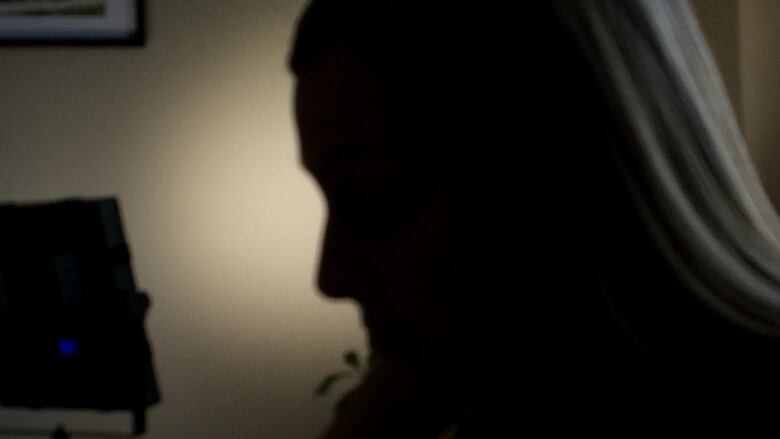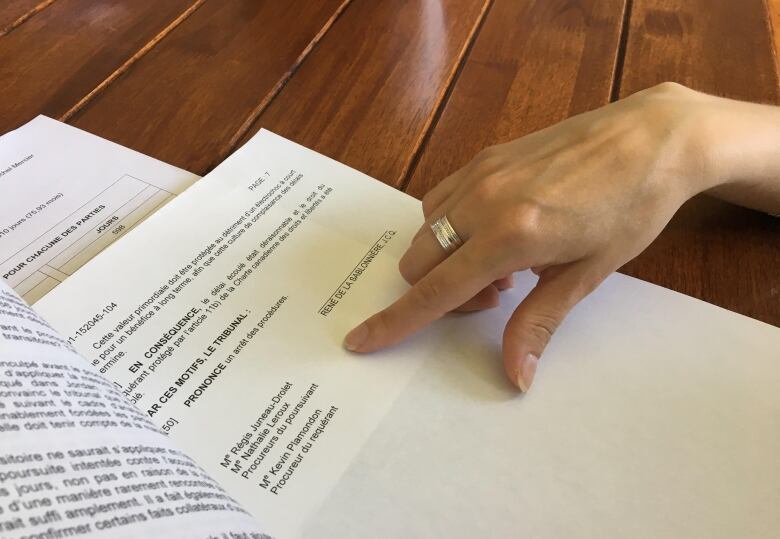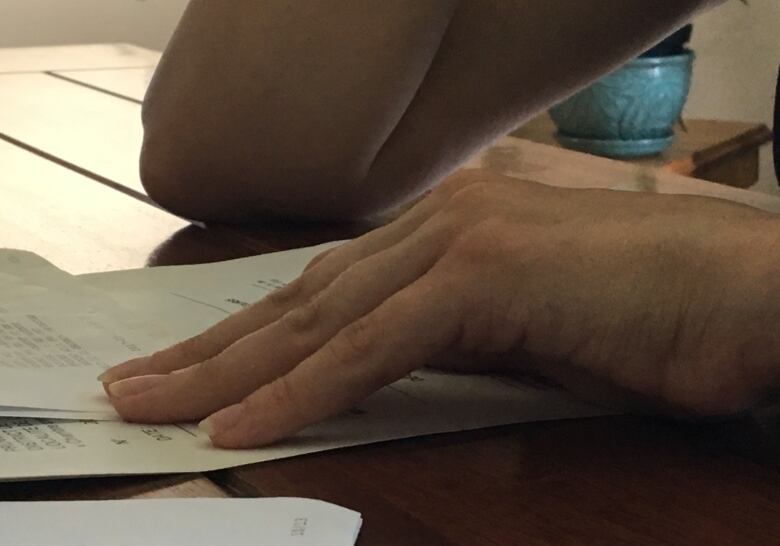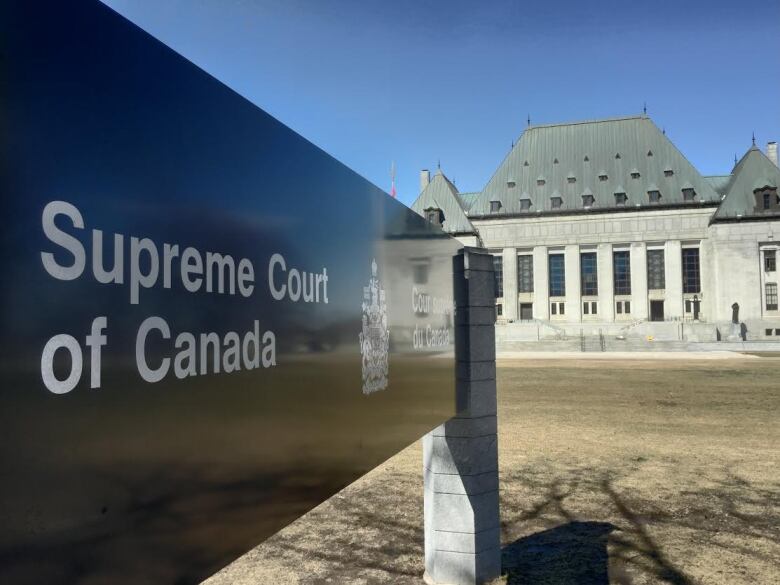After 4 years of waiting, her alleged abuser was finally brought to trial then charges were stayed
How 1 victim in Quebec is dealing with the Jordan decision

InDecember 2010, Magaliwalked into a Quebec City police stationto accuseher stepfatherofsexual abuse.
It was another four years before the case came to trial;Magaligrew angryand frustrated at the delays.
"You feel powerless, and you want to do something," said the 29-year-old mother of two. "I would have liked togo talk to the judge and say 'Hey, do you understand how difficult this is? Why is my case taking so long?'"
That was two years ago. She facedan even bigger shockthis spring.The man she accused of hurting her, at whose trial she had twice testified,was granted a stay of proceedings.
Judge Ren de la Sablonnire said he came to the conclusion "reluctantly," but a Supreme Court decision known as the Jordan ruling left him no choice.
"It's as if [the court said] 'It doesn't matter he abused you, we couldn't care less,'"Magalitold CBC News in a recent interview. CBC agreed to use a pseudonymto protect her identity.

Abuse at hands of the 'angel'
The Jordan rulingdelivered by a divided Supreme Court in 2016 places strict limits on trial delays. It has caused havoc on the Quebec justice system; hundreds of defence lawyers have applied forstays citing the decision.
So far, three murder suspects in Quebec have avoided trials by appealing to the Jordan ruling. Dozens of othersuspected criminals have also had their charges stayed.
These decisionshave left victims likeMagaliin the lurch, waiting for justice that may never come.
Before the charges were stayed, her stepfather's trial lasted long enough forMagalito have twice taken the stand. She told the court that the abusebegan when she was 14 years old.
After thefirst alleged assault, in acamper truck behindtheir home,Magalitold her stepfatherit would never happen again.
But when she was 16, and at the age of consent, her mother got involved. She toldMagalishe had someone for herto meet, and told her it was "Daniel," an angel.
Magalisaid she laughed out loud when she saw it washer stepfather, speaking in a slightly different voice.

Magali'smother said the angel had the power to give her confidence, but that it could only be transferred through sex.
"I was16, but it was manipulation," saidMagali. "Iwasn't mistreated or violated, but the mental manipulation was justas bad as physical violence."
Between the ages of 16 and22through her firstpregnancy with her boyfriend at the time,even after she moved outMagaliwould "accept" to have sex with the "angel." She alleged she was assaulted hundreds of times.
"There isn't a single night Ididn't go to bed crying," she said. "I wrote in my diary, I tried to stay happy with friends but you can't forget."
Magali'smother eventually pleaded guilty to sexual exploitation and served slightlymore than half of her 42-month sentence in prison.
"It's an injustice," saidMagali. "Yes, my mother was negligent, but the physicaland psychological abuse wasn't her, it was [my stepfather]."
A particular case
Defence and Crown lawyers shuttle in and out of the practice divisionroom at the Quebec City courthouse all day.
That's where Quebec Court judges take pleas, where clients choose if they want to go before a judge or face a jury and where lawyers set dates for their client's next visit to the courthouse.
MaximeRoy, a prominent Quebec City defence lawyer,told CBC that it's possible for defendants to have just one scheduling appearance. Magali'sstepfather had29.
"There were so many incidents in that particular case," said Roy, who was aware of Magali's case but did not represent any of the parties.
"I think probably each and every postponement from the judge was granted correctly, but as a whole, it's unacceptable."
Each one of those court appearances lastedno more than a handful of minutes. But that's all it took to postpone the case weeks, months and eventually years.
Magali's stepfather who was charged withsexual exploitation and sexual assault declined an interview request, after initially accepting. He also instructed his lawyer not to talk about the case.

Waiting 'like living in hell'
In an interview with Radio-Canada, SabinOuellet,chiefofprosecutions, saidMagali'scase was "exceptional."The Crown decided it would not appeal the judge's decision to stay the proceedings.
Ouelletdeclined to speak about the specific delays in this case, butsaid new measures implemented earlier this year mean that kind of delay will never occur again.
In hisruling, Judge de la SablonnirefoundMagali'sstepfatherwas responsible for an entire year's worth of delays. He changed lawyers three times, missed court datesand only once showed any interest in moving the caseforward, the judgesaid.
Whenthe stepfatherhired a fourth lawyer, de la Sablonnire said in court that he had theimpression the accused was doing everything he could to stall the proceedings.
"There are victims in this case who want to move on.Can this wrap up at some point?" asked de la Sablonnire. He added thatwaiting mustbe "like living in hell" for the victim.
But in deciding to stay the charges, hesaid the bulk of the delayswere not the fault of the accused.
De la Sablonnire blamed the justicesystem for not having enough courtrooms available, and the Crown for doing too little toshorteneach postponement.
His written decision ended bysaying the Jordan ruling is delivering a short-term "electric shock" to the justice system to ensure an end to the culture of "complacency."
As for Magali, she says she'sspeaking out now because there are others like her, who overcame their fear and went to the police.
And she said she's happy for those who will benefit from the ruling in the future.
She also doesn't regret anything because the man she accused is no longer in her life, and will never come near her two daughters.












_(720p).jpg)


 OFFICIAL HD MUSIC VIDEO.jpg)
.jpg)



























































































